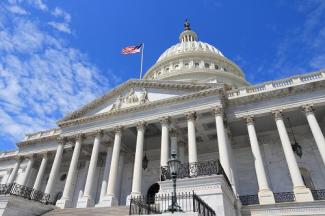
The CARES Act and Your Retirement Accounts
The $2 trillion Coronavirus Aid, Relief and Economic Security (CARES) Act was passed by the House today and signed by President Trump. It comes on top of a massive intervention by the Federal Reserve, including a revival of ZIRP (Zero Interest Rate Policy) and a far more extensive version of the Quantitative Easing implemented during the Global Financial Crisis of 2008. Until today’s drop of 915 points on the Dow, the market had reacted quite positively to these developments. The bleeding in the credit markets (both corporate and municipal) has stopped, at least for now. The CARES Act will impact retirement accounts in several different ways.
First, the deadline for making 2019 IRA contributions has been extended along with the tax return filing date from April 15th to July 15th, 2020. The extended deadline also applies to 2019 contributions to Health Savings Accounts.
Second, RMDs (required minimum distributions) have been waived for 2020. This will be helpful to retirees because 2020 RMDs would have been based on 12/31/2019 account values which are far higher than today’s values for most investors. Distributions from traditional/rollover/inherited IRAs will still be fully taxable.
Third, for “affected individuals”, the CARES Act waives the 10% early distribution penalty on up to $100,000 of 2020 distributions from IRAs and company plans. The tax would still be due but could be paid evenly over three years or the funds could be returned to the accounts. For 401(k) plans, it’s very important to understand the specific plan rules for loans and hardship withdrawals. If a 401(k) plan allows loans, then the maximum amount of the loan is now the lesser of $100,000 or 100% of the account balance. The loan must be taken within the next six months, and loan repayments could be suspended for one year. For these purposes, the definition of an “affected individual” includes individuals –
- who test positive for the virus that causes COVID-19,
- whose spouse or dependent tests positive, or
- who experience adverse financial consequences as a result of being quarantined, furloughed, laid off, having hours reduced, or being unable to work due to lack of child care due to the virus or disease.
It also includes individuals who are forced to close or reduce the hours of a business they own or operate.
We wish all of our clients and plan participants an enjoyable, safe, and healthy weekend.

